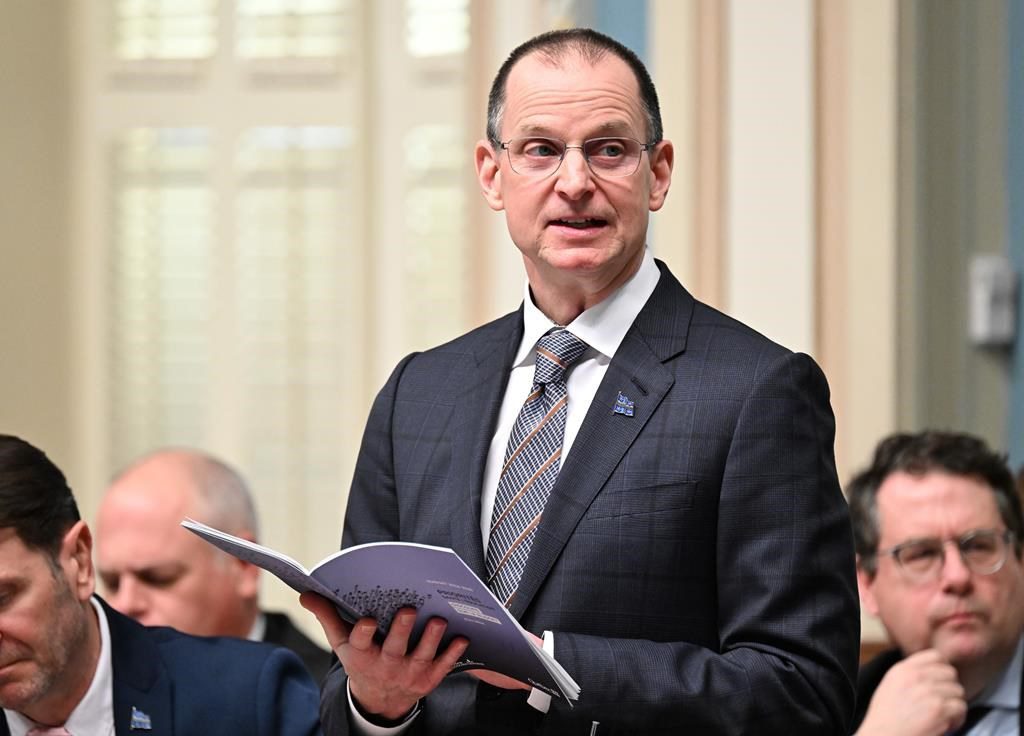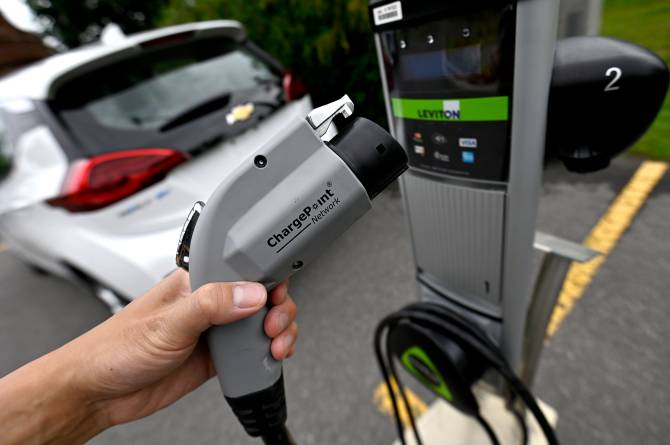Car dealers and makers believe that Quebec's decision to stop offering a rebate for electric vehicle purchases will prevent people in the province from buying cleaner cars.
Ian Sam Yue Chi, the president and CEO of the Corporation des concessionnaires d'automobiles, the province's auto dealers association, stated that some consumers will not be able to afford zero-emission electric vehicles without the current rebate of up to $7,000.
“It will slow adoption, so we might not meet the targets that had been set by the government. As well, we’re worried about the issue of vehicle affordability, removing these incentives will ultimately make buying vehicles more expensive for Quebecers,” said Sam Yue Chi in an interview on Wednesday. “It’s bad news.”
Quebec Finance Minister Eric Girard announced in his budget on Tuesday that the government will gradually phase out subsidies for electric vehicles and plug-in hybrids starting next year, and fully end them in 2027.
Girard told reporters that the cost of the program, which amounts to about $400 million between April 2023 and January 2024, is too high considering the reduction in greenhouse gas emissions it accomplishes.
The province mentioned in the budget that as one in five new vehicles sold in Quebec is electric, the rebate is no longer needed to stimulate purchases.
However, Sam Yue Chi stated that it is premature to end the successful program, and added that electric vehicle sales declined swiftly when a similar program in Ontario was terminated in 2018.
Quebec currently provides rebates of up to $7,000 for the purchase of a new, fully electric vehicle and up to $5,000 for the purchase of a plug-in hybrid. Used electric vehicles are eligible for a rebate of up to $3,500.
Beginning next year, these subsidies will decrease to $2,000 for hybrids and used electric vehicles, or $4,000 for new electric cars, before being halved the following January and phased out one year later.
The federal government also offers a rebate of up to $5,000 for the purchase of zero-emission vehicles that is planned to continue until the end of March 2025, or until the funds allocated to the program are used up.
Brian Kingston, the president and chief executive officer of the Canadian Vehicle Manufacturers’ Association, mentioned that Quebec has been a leader in electric vehicle adoption due to the province's encouragement of purchases and support for developing a charging network.
“Those are the two barriers to adoption and that’s why Quebec leads, but what we’ll see if they pull this incentive too quickly is that demand won’t hold up, because the price gap continues to exist between the vehicle technologies,” he said in an interview on Wednesday.
Quebec mandates a certain percentage of vehicles delivered to the province by car manufacturers to be zero-emission vehicles through a system that provides manufacturers with tradable “credits” for selling electric vehicles and deducts credits from gas-powered car sales.
Kingston mentioned that the mandate was recently strengthened, and by 2030, the government will require 85 percent of cars sold in the province to be zero emissions vehicles.
He said if the demand for electric vehicles doesn't keep growing as Quebec expects, then the only option is to stop selling traditional cars in Quebec. This would be bad for dealers, consumers, and auto manufacturers.
The Quebec Environment Minister thinks that electric vehicle prices will decrease, but Kingston disagrees. He thinks the prices will drop gradually because automakers are making big investments in a North American battery supply chain.
The Quebec government wants the province to play a big role in the battery supply chain and has offered billions of dollars in subsidies to attract companies like Swedish battery maker Northvolt. They are also supporting the creation of battery component plants, promoting the province's cheap electricity and lithium supplies.
Marc-André Viau, a director at the environmental group Équiterre, said that they supported the initial rebates to kickstart the electric vehicle market, but can't continue them due to the high cost.
Viau suggested a system where people buying gas-powered cars contribute to a fund that is used to subsidize electric vehicle purchases. He believes that while electric cars can reduce greenhouse gas emissions, using public transit or other forms of transportation is a better option.
He agreed that the rebates were not effectively reducing greenhouse gas emissions, but he also stated that Quebec is not adequately funding initiatives like public transit that would be more cost-effective.
He explained that it seems like they have understood the issue, but they are not providing enough funding for the corresponding solution.
— With files from The Canadian Press’ Patrice Bergeron




